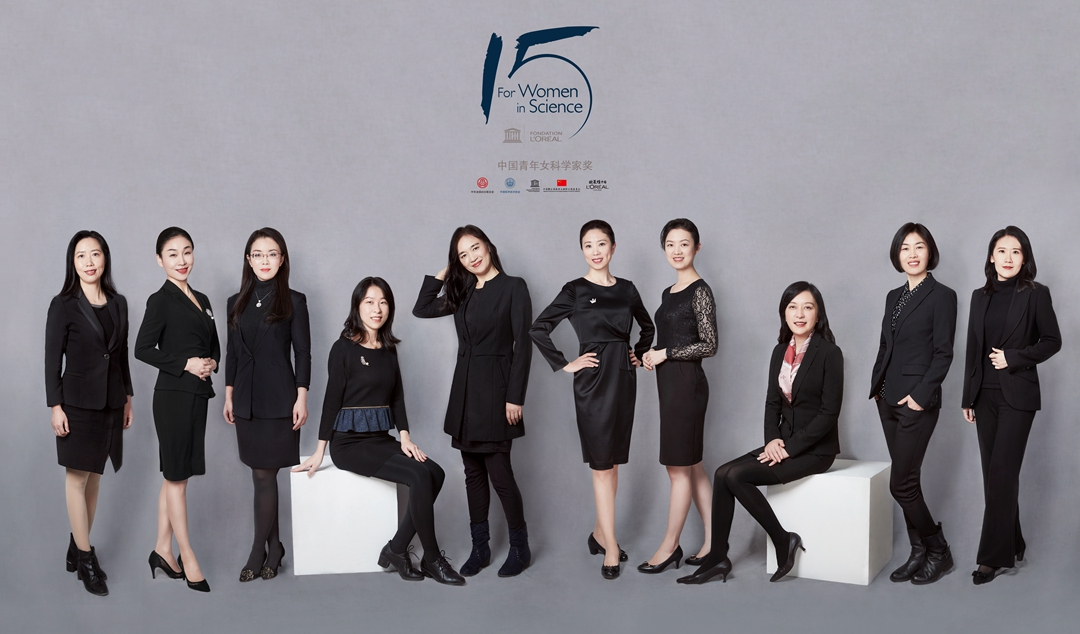
Domestic
22:41, 29-Apr-2019
Young women in science: 10 scientists win fellowship award
Updated
13:10, 30-Apr-2019
By Sun Ye, Zhao Jing
00:50

Ten scientists were given the coveted Chinese Young Women In Science award on Monday in Beijing. From chemical science to bio-ecology to rocket science, the winners, who are all under 45, come from across China and from different disciplines. They will each receive 100,000 yuan each.
This is the 15th year the fellowship has been awarded, and it was set up to promote female participation in the science arena.

Winners of the China Young Woman in Science Fellowship. /CGTN Photo
Winners of the China Young Woman in Science Fellowship. /CGTN Photo
Huang Xiaowei, Secretary of Party Committee of the All-China Women's Federation, said at the award session that China's fast advancements in science owe much to female scientists. "These 36 million female scientific workers have made huge contributions to this regard. We will continue to support our female scientists in all aspects. We will also work to encourage younger females to get into science," Huang said.
Lan Zhenzhen, vice-president of L'oreal China, which has been in partnership with the award since the start, says the winning scientists are extraordinary not only in their own fields of research. "They also have a very high sense of social responsibility. They are active in making the world a better place in so many ways," Lan told CGTN. "The scientists are at the same time mothers, daughters, volunteers, educators, etc. They wear so many hats and whatever it is that they do, they excel."
Niu Shuli, a winning ecologist from the Institute of Geographic Sciences and Natural Resources with Chinese Academy of Sciences, says she has been scaling the heights of science out of love for her work. "My ultimate goal is to uncover the common law that governs all living things," Niu told CGTN.

Niu Shuli, a winning ecologist with the Chinese Academy of Sciences. /CGTN Photo
Niu Shuli, a winning ecologist with the Chinese Academy of Sciences. /CGTN Photo
Niu's most cited works have led her to places like the Qinghai-Tibet Plateau, places that are cold, oxygen-starved and physically demanding. By deciphering plants and micro-organisms in such surroundings, she shows how climate change has worked on various levels.
It's hard work. But Niu says it's also fun.
She also says even failed lab results are part of the scientific charm. "For me, they are not setbacks," Niu told CGTN, "the unknown and unexpected are exactly why science is so fascinating." And she's trying to pass the fascination to her students now.
Niu leads a team with a 1:1 gender ratio of graduate students. "I see so many aspiring, talented young women studying now," Niu said, "but on the other hand, they will be facing very tough decisions and I worry they may give up science for family, marriage demands." Niu cites some alarming figures in her profession: Less than 10 percent of the country's academicians are female, and she has been in seminars where she's the only woman in the room.
"The situation has been changing for the better," Niu said, "but still, women are going to face more challenges if they want to carry through with their career."
"Women must persevere," Niu said.

SITEMAP
Copyright © 2018 CGTN. Beijing ICP prepared NO.16065310-3
Copyright © 2018 CGTN. Beijing ICP prepared NO.16065310-3